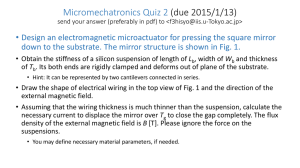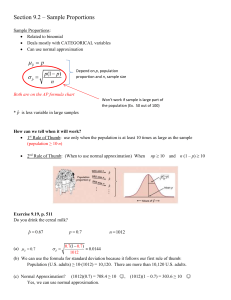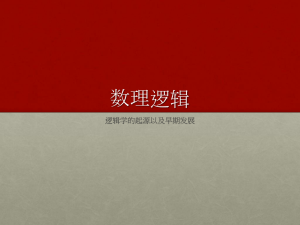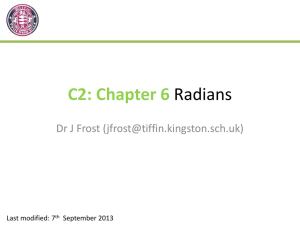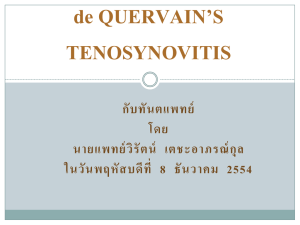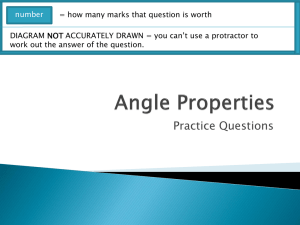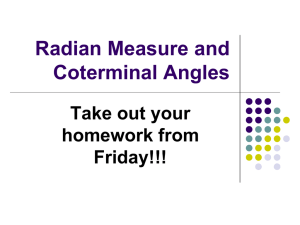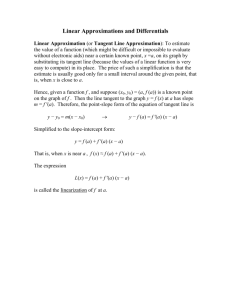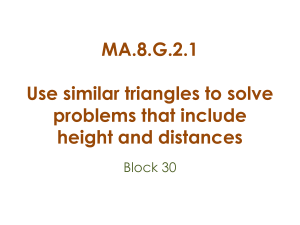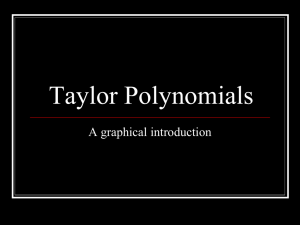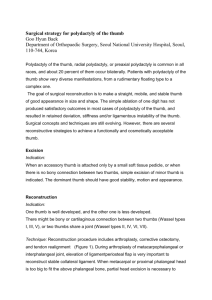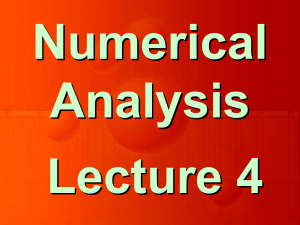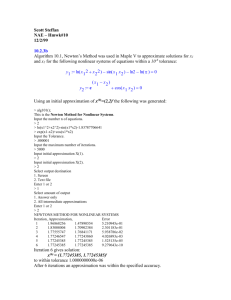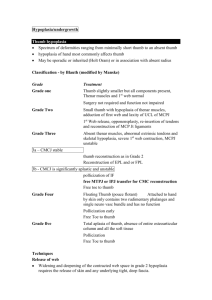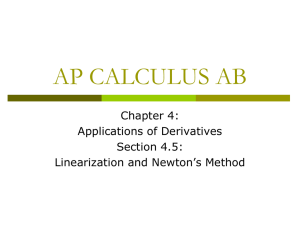PPT
advertisement
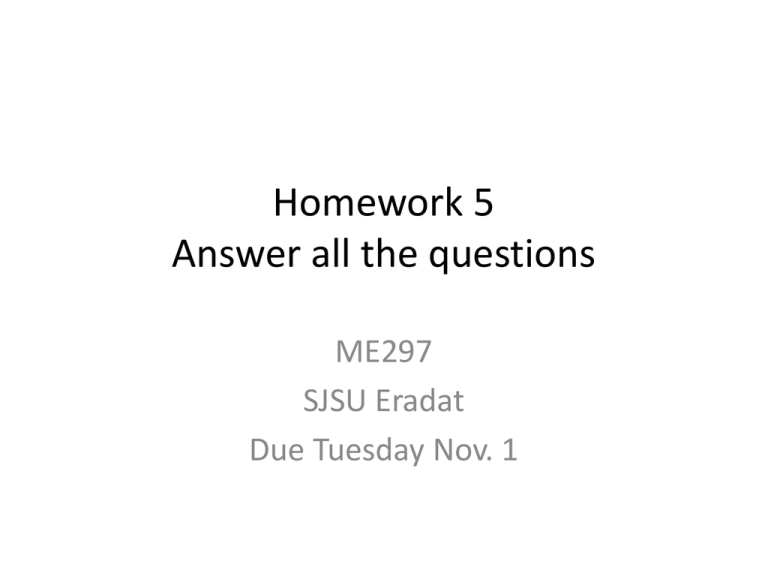
Homework 5 Answer all the questions ME297 SJSU Eradat Due Tuesday Nov. 1 5.1) Rules of thumb • Decisions are made by efficiently applying “rules of thumb” to make quick approximations. Throughout your career, you should make sure to collect these and know how and when to use them (Jim Burge). As part of your homework assignments, you should review the relevant notes and find at least 6 useful rules of thumb from the last week’s lecture notes LN11 – LN13. Report them in the following format. Name for Rule Small Angle Approximation The Rule of Thumb sin θ ≅ θ (in radians) When is this used? This is used for small angles (< 0.2 radians or 11.50) Application of this approximation greatly simplifies analysis and calculation Limitations The percent error in the approximation is roughly θ2/6 x 100% so the approximation is valid to < 1% for angles < 0.24 radians (14°) and is valid to 0.01% (100ppm) for angles < 1.4. (you find this by calculating (sin θ – θ)*100 for a range of angles and arguing when if you use it is a situation what kind of error you are signing up for) 5.2) Free Body diagrams Correct the free body diagrams for 4 of the 5 cases. A) 5.3 Static determinacy Of the following cases which ones have 1. Static determinancy 2. Overconstraint 3. Underconstraint 4. Simultaneous overconstraint and underconstraint. Suggest proper modifications to correct them. B) 5.4 The homogeneous cylinder has a mass of 40 kg and rests on the surfaces which are inclined at 30 and 60 degrees respectively from the horizontal. Determine the contact forces a) For smooth surface without friction b) For rough surfaces with coefficient of friction 0.4 A 5.5 The uniform bar AB is 30 kg including the end rollers. It is supported by the horizontal and vertical surfaces and by the wire AC. a) Calculate the tension T in the wire and the reaction against the rollers at A and B on the earth. b) Repeat the calculations for the structure on the Mars. 5.6) ISO 10110 Drawings: For the lens below, define each of the quantities indicated 6.1 Mirror mount This part is not due on Nov. 1st. It is to get started with cad design. Understand the definition of a datum on a drawing. Make a CAD drawing for the 1” flat mirror mount that use ANSI Y14.5 conventions for dimensioning and tolerancing. Correctly show dimensions for linear size, diameter, and radii. Make up the numbers and tolerances based on the following most important issues: a) Diameter of the optics is 1” b) center-to center of the holes is 30mm c) Specs of the mirror to be mounted is given in the table. We want to preserve the mirror’s functionality and specs. Use feature control frames to specify tolerances for straightness, flatness, roundness, profile, perpendicularity, parallelism, concentricity, position, and runout. Define datum references as necessary.

